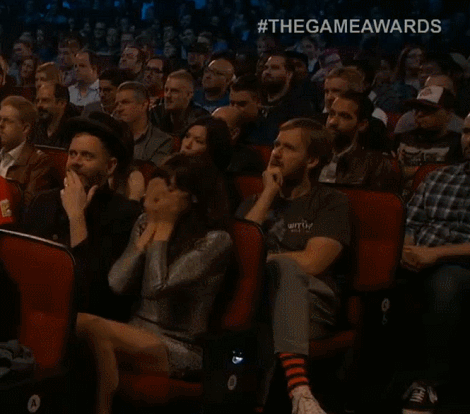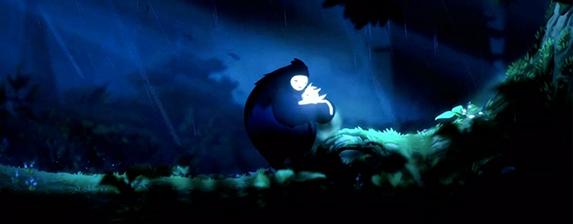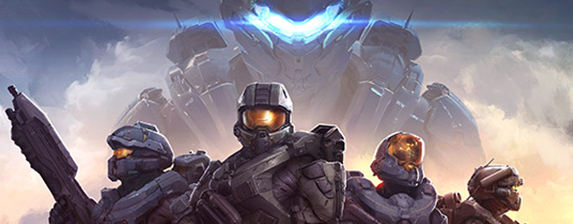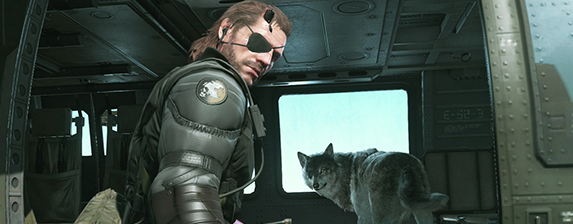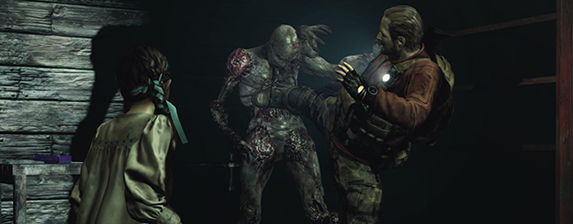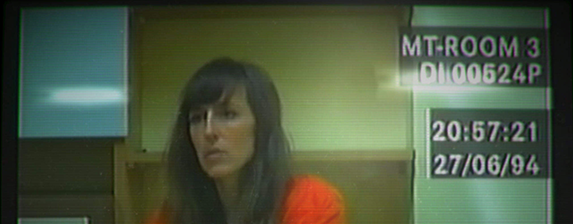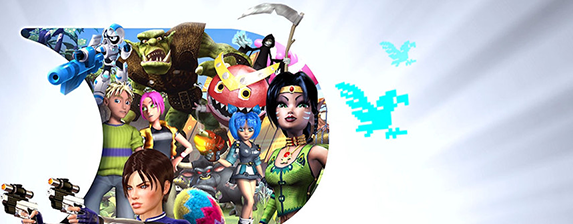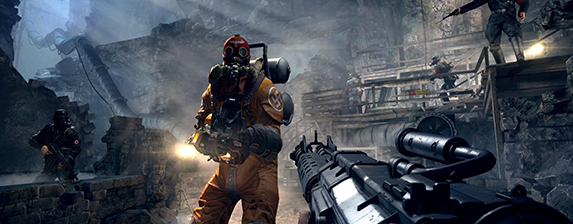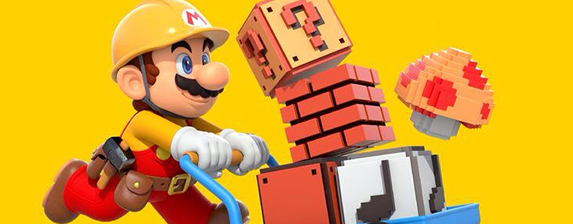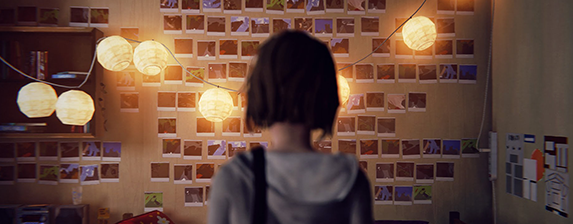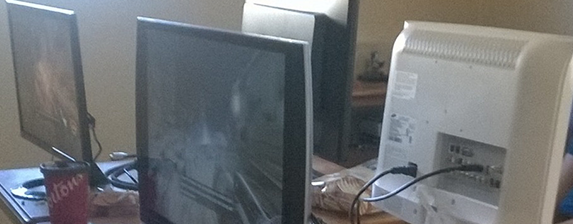1. The Witcher 3: Wild Hunt ; The Witcher 3 feels like it's what game design has been building to for years now. Everything that developers like Bethesda and Rockstar have been doing to build open-world games and everything RPG developers like BioWare have been doing for years with story choice in games all seems to come together here. The Witcher 3 is still definitely an RPG with all of the character progression and crafting and dialog trees that entails, but the moment-to-moment playing of the game feels much closer to something like Red Dead Redemption then any of the RPGs that The Witcher actually counts as predecessors. Sure, some people will complain that the combat lacks the impact of something like Bloodborne, but it's not trying to be that. What it has is absolutely best in genre. On top of that, it reins in the worst excesses of recent open-world games with their endless copy-and-paste tower climbing objectives and grindy MMO sidequest designs by making sure that every sidequest really feels just like a main mission, only smaller. Combined with quality story and characters and first-rate visuals, it's the most complete package of the year, bar none.
2. Life is Strange ; I think I started playing Life is Strange as a joke. Everything about it screamed bad: a choose-your-own-adventure about teenage drama, featuring dialog written by middle-aged Frenchmen trying to sound like Portland-area teenage girls and stripped-down graphics that look like every character is made out of silly putty. And admittedly, that first episode wasn't great. Most of the enjoyment from it came from laughing about overuse of words like "hella" and "selfie", poor lip sync, and out-of-the-blue references to Final Fantasy: The Spirits Within. But there was just enough there to grab me and bring me back to episode 2, the one where it all clicked. The time travel elements were consistently used in interesting ways that felt like they were the first time I was doing something new in one of theseTelltale-like games since the first Walking Dead. The dialog, once grating, began to seem like maybe not actual current teen lingo, but at least something that felt like it. The graphics began to reveal their own artistic charms. The character models grow on you as the characters endear themselves to you (through what have to be some of the best voice performances of the year) and something about the lighting in that game makes the whole look stick. Then the end of episode 2 cements Life is Strange as an emotional powerhouse, and it never lets up from there (even the ending, which I really liked)
3. Ori and the Blind Forest ; Ori overwhelms you the moment you first lay eyes on it. Everything is colorful and everything is detailed and everything moves and all the while the music is swelling, the most over-the-top Hollywood orchestral score I've heard in years. Games are hyperbolically called "paintings come to life" way too often, but it's the best descriptor I can think of for Ori. Given all of that, I was expecting it to be a pretty game that you mostly just trudged through to look at, but then you start to move around the world and it's all so tight. Ori is often lumped into the Metroidvania genre and it is to a degree and I can understand why some people find it disappointing as one of those. The exploration and secrets are there, but they're not anything special. But to me, Ori feels closer to something like an open-world Meat Boy. It's a game where just the feel of moving around the world is part of the value, and it excels at that. I went into Ori expecting a game I played for the sake of the art, but got a game that stands on its own incredibly well.
4. Undertale ; Undertale deserves credit for being one of the few games to really consistently make me laugh. Its characters are consistently delightful and charming. It manages to take an ancient, dare I say somewhat stale genre, and inject so much life into it with a few minor tweaks, while still feeling like a genuine love letter to the games that inspired it. Couple that with the fantastic soundtrack, and knowledge that it was all made by a single person with no game design or programming background, and the series of crazy postmodern twists the story takes and it's hard not to be impressed.
5. Bloodborne ; I never liked the Souls games. People hyped them up and I tried to get into it, but the combat, while precise and challenging, was never any fun, and while there would be a few moments of really inspired visual design, I found the games to be ugly to a degree that I really didn't want to spend any time in that world. Bloodborne fixes both of those problems. The combat feels right now, and more powerful hardware has let FROM's art finally shine through. I still don't like the game as much as the diehard fans do part of me feels like I would have enjoyed it more if I had allowed myself to just quit sometime after Ebrietas or maybe even Rom but some other part of me is thrilled just to be able to say I beat the damn thing, which is as good a sign as any that this thing got its sadistic claws into me.
6. Splatoon ; Who ever thought the shooter of the year would be a Nintendo game about squids? Splatoon is maybe the most refreshing games I've ever played. After years of same-old shooter design, Splatoon makes it all feel new again. My only complaint is just that I wish there were more of it. The multiplayer is great, but still fairly limited even after several patches, and the single-player which is incredibly underrated is unfortunately short.
7. Tales from the Borderlands ; Telltale's formula has worn a little thin ever since the first Walking Dead blew everyone away, and Tales from the Borderlands seemed like it was going to be the absolute nadir of that trend when it was announced. Who was asking for this? But the result was great. Borderlands' story elements were always sidelined by the Diablo-esque nature of its design, so who knew they could turn out so good when put into a story that actually focused on them? While Telltale's other franchises have wallowed in grittiness and darkness, Tales leaves so much of that behind by refusing to take itself seriously. Comedy suits these games more than I think anyone had realized, and I hope Telltale looks into more games like this going forward.
8. Axiom Verge ; I was never big in Metroid. My first was Prime, which I thought was pretty good, and I never got into the 2D ones, or the Castlevania games for that matter. That said, I knew a Metroid clone when I saw one. The graphics, the music, Axiom Verge was as Metroid as it could be. When am I going to learn to curl up into a ball? But then you don't. Instead, it subverts your every expectation. Instead of a ball, you get this little bug droid to go get things for you. Instead of getting a double jump, you somehow just fuck with the planet's gravity. And it's all done in such a way that adds to the feeling that something is off about this world. The first time you phase through a wall, it feels gross and wrong. That said, for as much fun as I had every time I got a new item dreaming up what weird ways I could use it, the actual playing of the game was sometimes a chore. The delight of realizing where and how you could use a new item to get somewhere new always came crashing down as you realized just how unpleasant the backtracking was going to be.
I'm really bummed out that I wasn't able to play enough Metal Gear, Assassin's Creed, or Fallout to consider them for this list, but it was just that sort of year.

